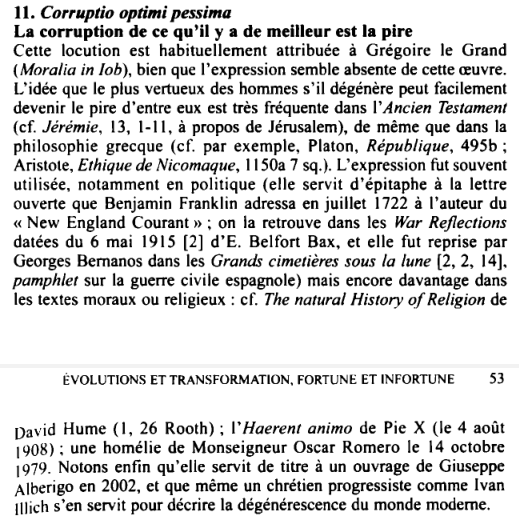Friday, July 22, 2022
Corruption
Roger Kimball, "The Ivy League scolds come for Amy Wax," Spectator (July 20, 2022):
From Kenneth Haynes:
Newer› ‹Older
I have always admired the tag corruptio optima pessima: the corruption of the best is the worst.I don't admire a garbled Latin sentence. Read corruptio optimi pessima. Screen capture taken today: You can find hundreds of Google hits for Kimball's version, as well as many occurrences in books, but it's still wrong. On the proverb see Renzo Tosi, Dictionnaire des sentences latines et grecques, tr. Rebecca Lenoir (Grenoble: Jérôme Millon, 2010), #11, pp. 52-53: Tosi's earliest citation is from 1722, but there are many earlier examples. The earliest I can find is Delle Relationi Vniversali di Giovanni Botero Benese. Terza Parte (Rome: Georgio Ferrari, 1595), p. 57.
From Kenneth Haynes:
The earliest occurrence I know of "corruptio optimi pessima" in the familiar proverbial form comes from Nicholas of Lyra's Postilla Moralis (1339) on I Kings 13 (to judge on the basis of an early printed text). Here is a snapshot from a Google Books copy said to be from 1478: Expanding abbreviations and adding punctuation, I think that would make it:Idem dicendum de prelato malo et multo plus, quia regit in spiritualibus, que temporalibus preferuntur; corruptio enim optimi pessima iudicatur.
"The same is said of an evil prelate and much more, since he rules in spiritual things, which surpass temporal things; for the corruption of the best is judged the worst."
Labels: typographical and other errors



